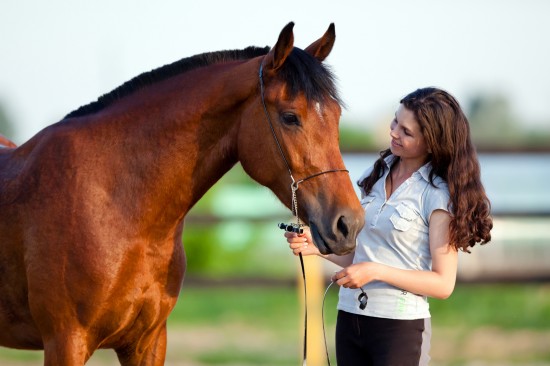
Keeping your four-legged friend healthy takes a combination of management techniques. Genetics, diet, exercise and veterinary care are factors that contribute to health and longevity in dogs.
While it is not always possible to determine whether a pet has the genetic makeup that will provide it with health and longevity, some factors can influence genetic health. Mixed breed dogs are often thought to be healthier. Their random genes are thought to give them hybrid vigor. This is true in some cases, but mixed breeds can only be as healthy as their parents. Two unhealthy parents will very likely produce unhealthy pups, whether they are mixed or purebred. The genetic makeup of purebred dogs is easier to ascertain, as selecting a purebred pet usually involves contact with a breeder who (ideally) maintains health records for the dogs they breed along with information about close relatives. Choosing a pet from a reputable breeder will give you access to the genetic background of your pet.
Diet is important to the health of your pet. A wide range of commercial diets is available, designed for palatability, nutrition, convenience and weight control. Commercially prepared diets are required to carry ingredient and nutrition labeling. Read the labels. Many inexpensive diets contain grain “fillers”, often in excess of the meat products. And while dogs will and do eat a variety of plant matter, large amounts of grains are thought to be responsible for allergies, overweight, and possibly endocrine problems. So look for a quality diet that is meat based to promote health in your pet. A word here about herbal additives—there is no scientific basis for the addition of human herbal products in dog food. Garlic, ginseng and rosemary may be good for people, but little, if any, research has been done on their benefit to dogs.
Dogs benefit from regular exercise that is age appropriate. Young puppies and elderly dogs should exercise carefully, the former because growing bones are soft and easily damaged, the latter due to diminishing energy and age related disease. Slower walks with intermittent stops will benefit an older dog and help them to maintain a healthy weight and good mobility. Puppies should not be forced to exercise, but given the opportunity to play, building strong bones and muscles at their own pace. Walking, jogging or biking may benefit healthy adult dogs. A game of tug-of-war or Frisbee may be enjoyable for dogs as well as helping to maintain a healthy weight. Your pet won’t be the only one to benefit from a regular exercise program, you will too!
Regular veterinary care should consist of more than vaccinations. Your veterinarian should provide a thorough exam, including a dental check and a blood panel if your pet is over the age of five. Many diseases have a slow onset, so a blood panel provides a basis for comparison as your pet ages. Always alert your vet to changes in your pet’s normal routines, as they may be signs of disease. Early treatment improves the chances of successfully restoring your pet’s health.
Canine genetics determine the risk of hereditary disease, but providing a high quality diet, age appropriate exercise and regular veterinary care will help you to maintain your dog’s good health. Good management will allow you to enjoy your four-legged friend for many years.
Author Sue Holsinger is a dog lover and breeder of purebred dogs with a lifetime of experience in dog care. Her website http://www.mydogshealth.org provides an online resource for people searching for information about dog health.
 The Importance Of Correcting Bad Behaviour In Horses And Ponies
The Importance Of Correcting Bad Behaviour In Horses And Ponies
 Reptiles birthday party- Must Organize For Having Special Party
Reptiles birthday party- Must Organize For Having Special Party
 The Behavioural And Socialisation Challenges Of The Lone Puppy
The Behavioural And Socialisation Challenges Of The Lone Puppy
 Make Your Home Beautiful With Fish Aquarium
Make Your Home Beautiful With Fish Aquarium
 Dealing With A Cat That Bites Or Lashes Out
Dealing With A Cat That Bites Or Lashes Out
 Checking Your Ferret Over And Identifying Good Health
Checking Your Ferret Over And Identifying Good Health
Copyright © 2005-2016 Pet Information All Rights Reserved
Contact us: www162date@outlook.com